Aditya Ghose
Towards Knowledge-Centric Process Mining
Jan 26, 2023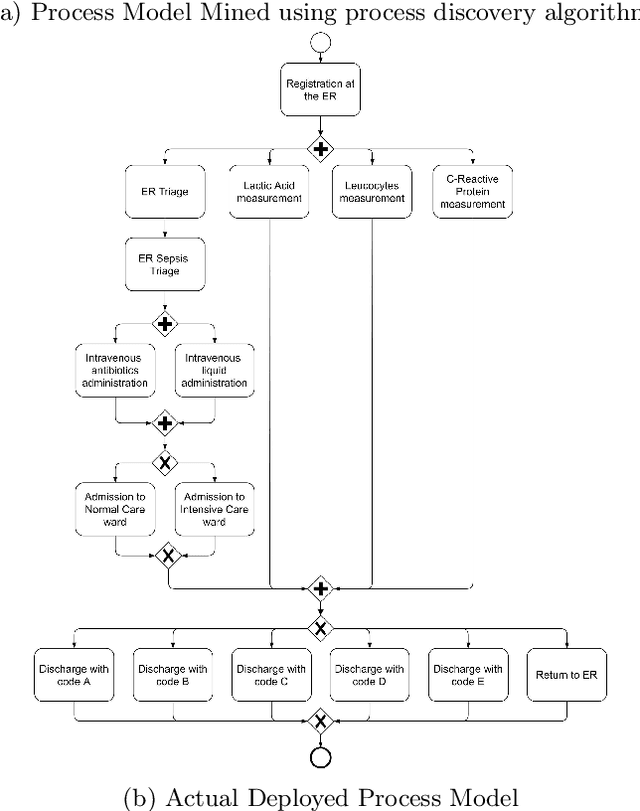

Abstract:Process analytic approaches play a critical role in supporting the practice of business process management and continuous process improvement by leveraging process-related data to identify performance bottlenecks, extracting insights about reducing costs and optimizing the utilization of available resources. Process analytic techniques often have to contend with real-world settings where available logs are noisy or incomplete. In this paper we present an approach that permits process analytics techniques to deliver value in the face of noisy/incomplete event logs. Our approach leverages knowledge graphs to mitigate the effects of noise in event logs while supporting process analysts in understanding variability associated with event logs.
On Conforming and Conflicting Values
Jul 08, 2019
Abstract:Values are things that are important to us. Actions activate values - they either go against our values or they promote our values. Values themselves can either be conforming or conflicting depending on the action that is taken. In this short paper, we argue that values may be classified as one of two types - conflicting and inherently conflicting values. They are distinguished by the fact that the latter in some sense can be thought of as being independent of actions. This allows us to do two things: i) check whether a set of values is consistent and ii) check whether it is in conflict with other sets of values.
A Value-based Trust Assessment Model for Multi-agent Systems
May 31, 2019Abstract:An agent's assessment of its trust in another agent is commonly taken to be a measure of the reliability/predictability of the latter's actions. It is based on the trustor's past observations of the behaviour of the trustee and requires no knowledge of the inner-workings of the trustee. However, in situations that are new or unfamiliar, past observations are of little help in assessing trust. In such cases, knowledge about the trustee can help. A particular type of knowledge is that of values - things that are important to the trustor and the trustee. In this paper, based on the premise that the more values two agents share, the more they should trust one another, we propose a simple approach to trust assessment between agents based on values, taking into account if agents trust cautiously or boldly, and if they depend on others in carrying out a task.
Towards effective AI-powered agile project management
Dec 27, 2018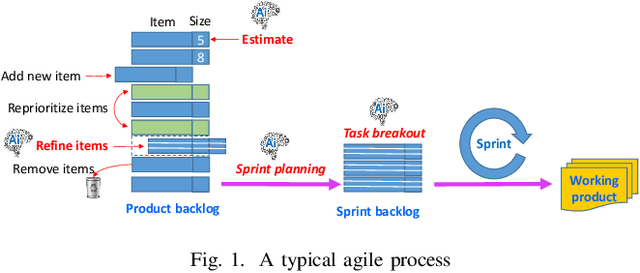
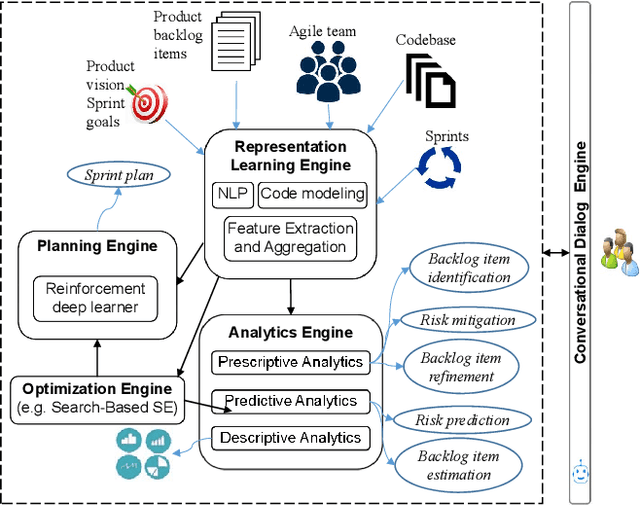
Abstract:The rise of Artificial intelligence (AI) has the potential to significantly transform the practice of project management. Project management has a large socio-technical element with many uncertainties arising from variability in human aspects e.g., customers' needs, developers' performance and team dynamics. AI can assist project managers and team members by automating repetitive, high-volume tasks to enable project analytics for estimation and risk prediction, providing actionable recommendations, and even making decisions. AI is potentially a game changer for project management in helping to accelerate productivity and increase project success rates. In this paper, we propose a framework where AI technologies can be leveraged to offer support for managing agile projects, which have become increasingly popular in the industry.
Memory-Augmented Neural Networks for Predictive Process Analytics
Feb 03, 2018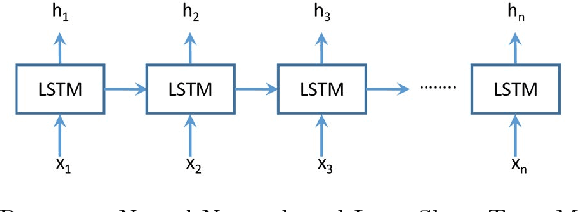

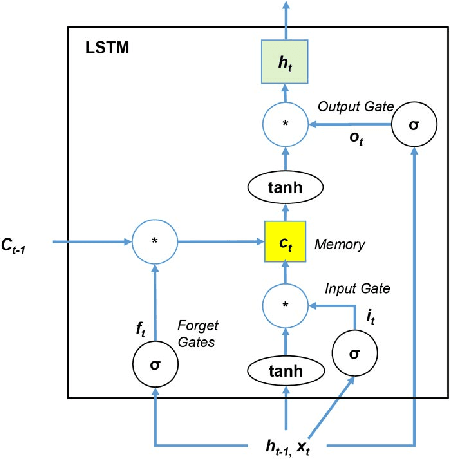

Abstract:Process analytics involves a sophisticated layer of data analytics built over the traditional notion of process mining. The flexible execution of business process instances involves multiple critical decisions including what task to perform next and what resources to allocate to a task. In this paper, we explore the application of deep learning techniques for solving various process analytics related problems. Based on recent advances in the field we specifically look at memory-augmented neural networks (MANN)s and adapt the latest model to date, namely the Differential Neural Computer. We introduce two modifications to account for a variety of tasks in predictive process analytics: (i) separating the encoding phase and decoding phase, resulting dual controllers, one for each phase; (ii) implementing a write-protected policy for the memory during the decoding phase. We demonstrate the feasibility and usefulness of our approach by solving a number of common process analytics tasks such as next activity prediction, time to completion and suffix prediction. We also introduce the notion of MANN based process analytics recommendation machinery that once deployed can serve as an effective business process recommendation engine enabling organizations to answer various prescriptive process analytics related questions.Using real-world datasets, we benchmark our results against those obtained from the state-of-art methods. We show that MANNs based process analytics methods can acheive state-of-the-art performance and have a lot of value to offer for enterprise specific process anlaytics applications.
A deep learning model for estimating story points
Sep 06, 2016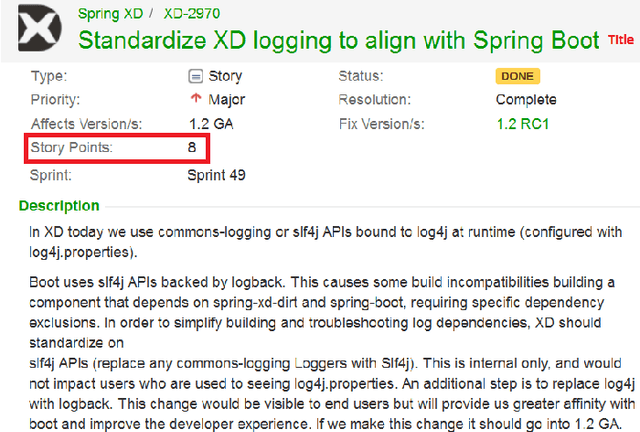


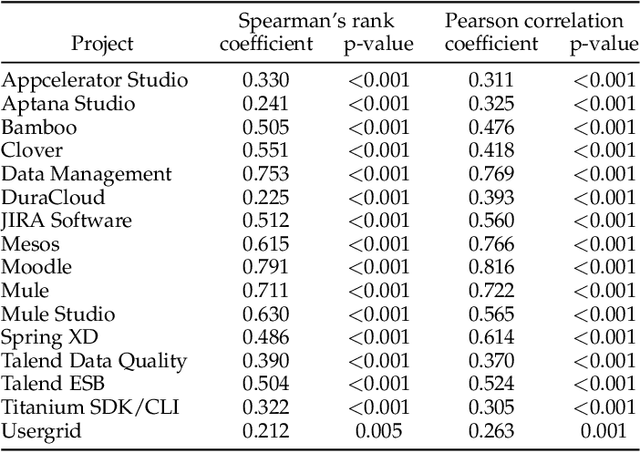
Abstract:Although there has been substantial research in software analytics for effort estimation in traditional software projects, little work has been done for estimation in agile projects, especially estimating user stories or issues. Story points are the most common unit of measure used for estimating the effort involved in implementing a user story or resolving an issue. In this paper, we offer for the \emph{first} time a comprehensive dataset for story points-based estimation that contains 23,313 issues from 16 open source projects. We also propose a prediction model for estimating story points based on a novel combination of two powerful deep learning architectures: long short-term memory and recurrent highway network. Our prediction system is \emph{end-to-end} trainable from raw input data to prediction outcomes without any manual feature engineering. An empirical evaluation demonstrates that our approach consistently outperforms three common effort estimation baselines and two alternatives in both Mean Absolute Error and the Standardized Accuracy.
DeepSoft: A vision for a deep model of software
Jul 30, 2016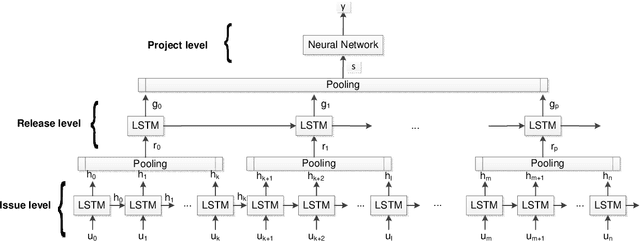
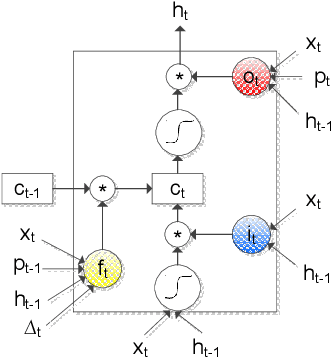
Abstract:Although software analytics has experienced rapid growth as a research area, it has not yet reached its full potential for wide industrial adoption. Most of the existing work in software analytics still relies heavily on costly manual feature engineering processes, and they mainly address the traditional classification problems, as opposed to predicting future events. We present a vision for \emph{DeepSoft}, an \emph{end-to-end} generic framework for modeling software and its development process to predict future risks and recommend interventions. DeepSoft, partly inspired by human memory, is built upon the powerful deep learning-based Long Short Term Memory architecture that is capable of learning long-term temporal dependencies that occur in software evolution. Such deep learned patterns of software can be used to address a range of challenging problems such as code and task recommendation and prediction. DeepSoft provides a new approach for research into modeling of source code, risk prediction and mitigation, developer modeling, and automatically generating code patches from bug reports.
Iterated revision and the axiom of recovery: a unified treatment via epistemic states
Jul 10, 2002Abstract:The axiom of recovery, while capturing a central intuition regarding belief change, has been the source of much controversy. We argue briefly against putative counterexamples to the axiom--while agreeing that some of their insight deserves to be preserved--and present additional recovery-like axioms in a framework that uses epistemic states, which encode preferences, as the object of revisions. This provides a framework in which iterated revision becomes possible and makes explicit the connection between iterated belief change and the axiom of recovery. We provide a representation theorem that connects the semantic conditions that we impose on iterated revision and the additional syntactical properties mentioned. We also show some interesting similarities between our framework and that of Darwiche-Pearl. In particular, we show that the intuitions underlying the controversial (C2) postulate are captured by the recovery axiom and our recovery-like postulates (the latter can be seen as weakenings of (C2).
 Add to Chrome
Add to Chrome Add to Firefox
Add to Firefox Add to Edge
Add to Edge